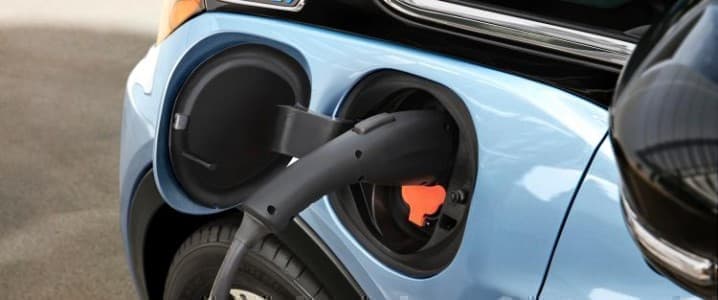Car buyers in the United States and major European economies expect improved infrastructure and range of battery electric vehicles (BEVs) to convince them to choose buying an electric car over a gasoline-powered car in five to ten years, a new report from human behavior and analytics firm Escalent showed this week.
Although drivers are unlikely to choose an EV over gas or diesel-powered car in the next year, the share of those who expect to buy a gasoline car in five to ten years is significantly lower, according to Escalent’s survey carried out in 2019 among 1,000 American consumers and more than 1,000 consumers in Germany, the UK, and Spain.
Over the coming decade, consumers expect electric vehicles to become competitors and viable alternatives to gasoline- or diesel-powered vehicles. This is a significant shift in consumers’ expectations, the study found.
Among American consumers, 70 percent expect to buy a gasoline car within one year, but the share of those expecting to buy a gas-powered car in five to ten years drops to just 37 percent. In Europe, 50 percent of potential car buyers would choose an internal combustion engine (ICE) car within a year, but only 23 percent would buy a gasoline vehicle in five to ten years, the survey showed.
Currently, EVs are still a tiny fraction of all cars sold in the United States, accounting for just 2.2% of all passenger car sales in Q3 2019. At the same time, sales of gasoline SUVs and non-commercial small and medium-sized pick-up trucks are on the rise.
Commenting on Escalent’s report, Mark Carpenter, joint managing director of Escalent’s UK office, said:
“While most buyers don’t plan to choose BEVs over gasoline-powered cars within the next five years, consumers have told us there is a clear intention to take BEVs seriously in the five years that follow.”
“However, manufacturers will need to tap into the emotional value of BEVs rather than just the rational and functional aspects to seize on that intent and inspire broader consumer adoption,” Carpenter added.
According to Wood Mackenzie, falling battery pack prices, faster charging, and greater ranges will make the 2020s the decade of the electric vehicle.
“BEVs are expected to reach price parity with conventional vehicles at point of sale in this decade,” Ram Chandrasekaran, Principal Analyst – Transportation & Mobility at WoodMac, said earlier this month.
By Tsvetana Paraskova for Oilprice.com
More Top Reads From Oilprice.com:
- Oil Prices Fall As OPEC+ Refuses To Act
- Oil Trading Giant Sees Oil Price Recovery Later This Year
- U.S. Gasoline Prices Jump On Outages At Major Oil Refineries


















The first reality is that despite huge government subsidies, sale of EVs accounted for only 2.2% of all cars sold in the United States in 2019. Globally, the number of EVs and hybrid vehicles is estimated at 4 million out of 1.5 billion internal combustion engines (ICEs) or 027%. This is despite government environmental legislations. EVs could never replace oil in global transport throughout the 21st century and far beyond.
The second reality is that range, charging time and price are only temporary teething problems for EVs. Technology will sooner or later resolve them. However, the real challenge facing a deeper penetration of EVs into the global transport system is the realization that oil is irreplaceable now or ever.
The third reality is that while EVs are benefiting from evolving technologies, ICEs are equally benefiting from the evolving motor technology. As a result, ICEs are not only getting more environmentally-friendlier but they are also able to outperform EVs in range, price, reliability and efficiency.
Dr Mamdouh G Salameh
International Oil Economist
Visiting Professor of Energy Economics at ESCP Europe Business School, London